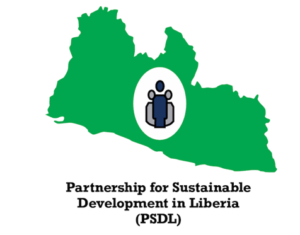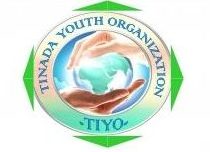2022 AIM Grants
At an event convened in the Spring of 2022, Civil Society Organization (CSO) Summit: Elevating Civil Society and Community Voices in Global Health, GHC facilitated workshops focused on turning advocacy into action. By participating in the workshop, organizations became eligible to submit a proposal for Global Health Council’s (GHC’s) first-ever Advocacy in Motion (AIM) Grants. These grants are intended to support CSO advocacy, health equity, and amplify the voices of local and regional organizations.
We could not be more pleased to share with you the five 2022 AIM grant recipients. We will be spending more time with each winner over the next few months – hearing more about what they do, the unique challenges they face in their country or region, and the progress they are hoping to make with the support of the AIM grant. But first, allow us to introduce you to the five inaugural AIM grant recipients:
- Alliance for Reproductive Health Rights
- CARAM Asia
- The Christian Fellowship and Care Foundation
- Partnership for Sustainable Development
- TINADA Youth Organization

About the organization: Alliance for Reproductive Health Rights (ARHR) is a Ghanian health advocacy organization ensuring that the sexual and reproductive health rights of all people – especially vulnerable groups such as the poor, marginalized, and women of reproductive age – are protected, respected, and fulfilled irrespective of socioeconomic status, gender or race.
The challenge: Though provisions are made in national and community health strategies for women-focused services, gender equity is not central to their delivery in Ghana. Women’s ability to access services and use health resources vary greatly, depending on their family, finances, location, time, and awareness.
Purpose of grant: ARHR’s advocacy plan will contribute to scaling up and mainstreaming gender equity considerations that improve accessibility, affordability, and quality of national and community-based health facilities.
Read a recent blog from ARHR.

About the organization: CARAM Asia is a regional network that spans Asia and the Middle East. It seeks to promote and protect migrants’ labor and health rights, with a focus on HIV and AIDS issues.
The challenge: Inequity in access to healthcare is still a major barrier for migrant workers in Asia. Discriminatory health policies, a lack of recognition of labor migrants’ health rights, fragmented health systems, insufficient resources, and lack of awareness of available health services make migrants and their families particularly vulnerable to sexually transmitted diseases like HIV/AIDS. In addition, this population has been disproportionately affected by the COVID- 19 Pandemic.
Purpose of grant: CARAM Asia seeks to address human rights and health inequities by reinvigorating existing strategies, and combining them with new strategies, to:
- Facilitate effective and sustainable policy interventions to reduce health inequities; and
- Mitigate health-related risks throughout the migration cycle.
Using the AIM grant, CARAM Asia will work to identify areas of urgent need related to migrant health issues at both national and regional levels. In addition, it will explore potential action areas within the health system to increase the capacity and competency of stakeholders in reducing inequities.
Read a recent blog post from Caram Asia.

About the organization: The Christian Fellowship and Care Foundation (CFCF), is a Nigerian registered non-profit organization with a mission to provide free healthcare and humanitarian services to surrounding rural communities and beyond.
The challenge: The Nigerian government has been too narrow with respect to health insurance, leaving too many citizens without coverage.
How the grant will address this challenge: The AIM grant will help CFCF to encourage citizens to use their vote to demand health insurance for vulnerable groups including: those who are physically challenged, prison inmates, children under five, refugees, victims of human trafficking, internally displaced persons, pregnant women, immigrants, and those in the informal sector. Through this effort, CFCF is eager to help close a critical gap preventing Universal Health Coverage in Nigeria. The initiative will also address inequities with respect to personal and health literacy, economic disparities, and high infant and maternal mortality rates.

About the organization: Partnership for Sustainable Development (PaSD) supports poor, marginalized, and disadvantaged populations in Liberia, helping them to claim their basic human rights and advocating for effective public governance with respect to natural resource management, WASH, health, and ensuring a stable environment.
The challenge: Using its AIM grant, PaSD will develop an advocacy plan to address challenges confronting public health facilities in two counties with large COVID case counts.
It will look at care services provided to the most vulnerable population such as pregnant women, persons with disabilities, the ageing, people with special medical conditions, and children.
Purpose of the grant: The project seeks to use advocacy to improve policies and increase the ability of public health systems to effectively respond to the needs of marginalized and disadvantaged populations. PaSD hopes to influence health leaders to create or improve existing standards of healthcare services and conditions and protect the most vulnerable from contracting COVID-19 while seeking care in facilities.

About the organization: Working in the western part of Kenya, TINADA Youth Organization, focuses on integrated mental health rights education and campaigns, child and youth empowerment, sexual reproductive health, and disaster risk reduction.
The challenge: A lack of commodities and human resources is impacting the quality of care in Kenya. The COVID-19 pandemic adds to existing social pressures and, combined with a lack of quality healthcare, sanitation, and hygiene, has made the problem even more visible.
The purpose of the grant: TINADA seeks to enhance demand and access to quality services for the residents of Homabay County in Kenya. The organization will do this by:
- Connecting service users with healthcare providers to measure and improve quality of care
- Empowering citizens to influence the planning process for health by building technical capacity and increasing information sharing
- Increasing the ability of health workers to determine demand and plan for adequate commodities and human resources
- Mobilizing political support for UHC prioritization, policy support, and financing.
Results Webinar